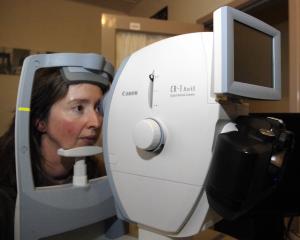Two Dunedin doctors are among those who disagree with Prime Minister John Key over the implications of circumventing Pharmac to provide 12-month funding of the breast cancer drug Herceptin.
The Government is paying for the drug - one of its election promises - through the Health Ministry instead of the drug funding agency because, legally, it cannot command Pharmac to subsidise Herceptin or any other drug.
Pharmac has refused to fund more than a nine-week course, saying scientific and other information has failed to convince it that the longer course offered any additional benefits.
Mr Key said yesterday he did not think the decision would set a precedent.
However, Dunedin Herceptin campaigner Dr Sue Walthert and South Dunedin general practitioner Dr Jill McIlraith both considered the Government could now expect more pressure for funding of high-cost drugs.
Dr McIlraith said: "If I was somebody with another rare condition who was trying to get funding for it, I would think `gosh, they've now bypassed the very systems that were put in place to assess this'.
So I think, individually, it's a great decision; as a society it's quite a problematical one.
"You start to get very ad hoc decisions that are granted and made on very emotional grounds."
Dr Walthert agreed that special interest groups would now "come knocking at the door" of the Government.
"I see big problems with that.
''The problem with funding in health systems is not going to go away.
''It's going to get worse.
''The community needs to start getting involved in saying what's important and what's not."
Director of the Auckland-based Women's Health Action Trust Jo Fitzpatrick said the decision to sidestep Pharmac sent "a clear message that a well-organised lobbying campaign can bypass the process".
Labour's health spokeswoman, Ruth Dyson, said there were many people with significant illnesses who were not able to get access to government-funded medication.
"They will ask, `Why them and not me?"' Ms Dyson said.
When asked if the decision set a precedent, Mr Key said drug companies always lobbied government.
He considered Pharmac made its decision on Herceptin "largely" on funding issues.
"Pharmac was very heavily constrained, its budget hadn't been increased in any dramatic way, this was a reasonably sizeable expenditure item for them and they rejected a 12-month funding of Herceptin - in my view partly driven off a lack of financial resources."
In a statement, Pharmac said it helped the ministry in its negotiations with supplier Roche and by providing information.
"Pharmac fully respects the democratic process that has led to the Government's decision."











